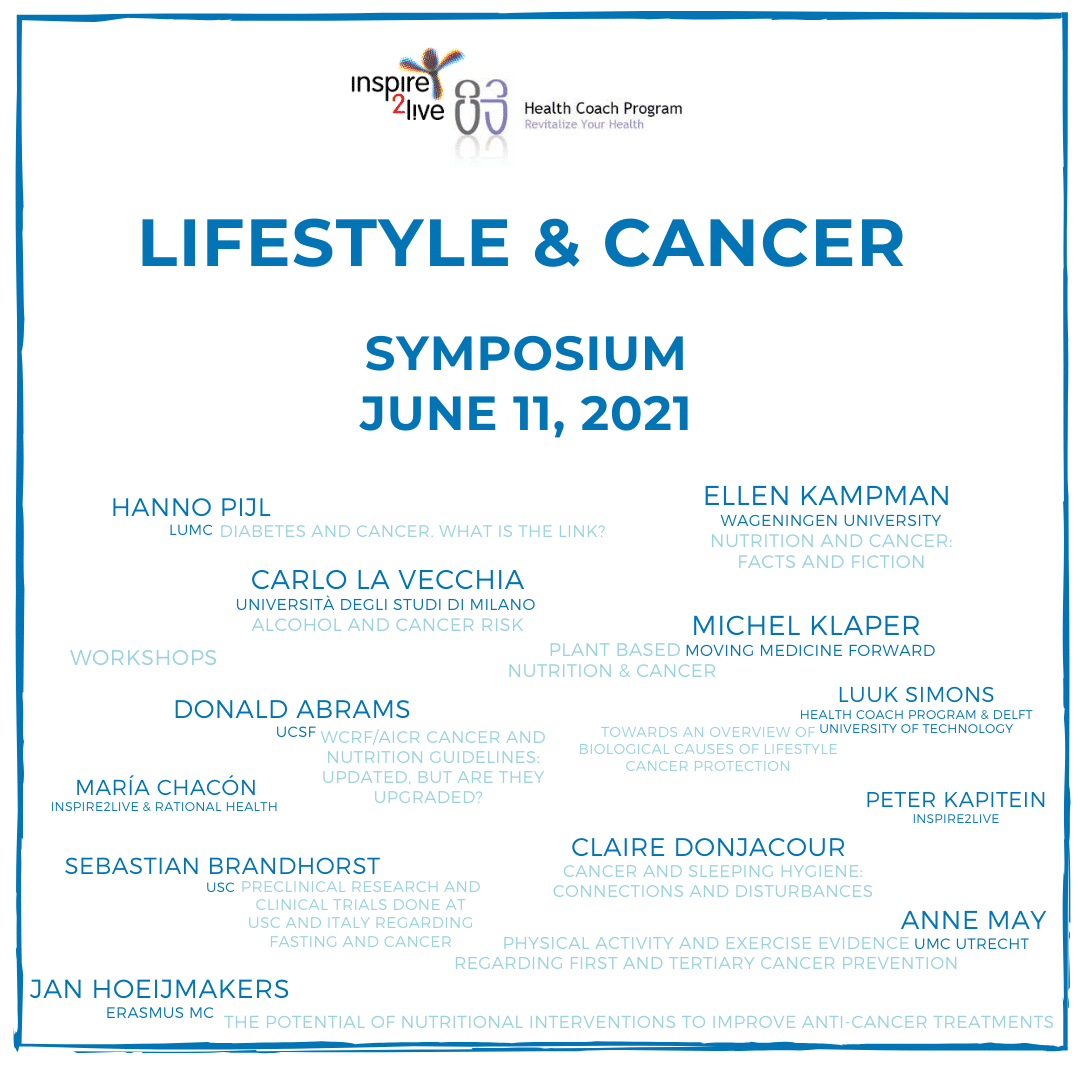Over the next decades, the global incidence of cancer is projected to increase significantly. This phenomenon is largely driven by an increase in lifestyle-related cancers due to global economic and demographic transitions. As causes of cancer and key targets for primary prevention, lifestyle factors such as smoking, alcohol intake, obesity, diet, and physical inactivity, sleeping habits, as well as reproductive and hormonal factors, are considered.
The position of the World Health Organization (WHO) is very clear: we should prevent! If we do this, the occurrence of cancer could be lowered. Prevention goes hand in hand with addressing these lifestyle factors, but what the lifestyle factors are and why they are important is not always well known. The access to proper information of the population is vital, necessary, and urgent.
To give an example: Most people know or have heard that smoking is a risk factor for cancer, as well as extreme sun exposure. But what about sugar and glucose-syrup? There are poor quality fats in excessive quantities and chemicals that are allowed in some countries but not in others.
As a nutritionist and activist in cancer prevention I get upset when I see people confident that they eat healthy while doing quite the opposite. I think this happens due to two main factors. The biggest is the lack of adequate information that the population receives regarding nutritional habits, whether on food labels or from education. Secondly, many times when people go to a nutritionist, they end up eating in ways that are not adequate for prevention like artificial sweeteners, excessive amounts of fat (even if good fats) and the idea that we need to eat five times a day.
I believe this is because of a mismatch between what nutritionists know and what science states. If the professionals are not sure, how are people supposed to do things right?
How is it possible that in Italy, for example, palm-oil is prohibited by law, but in The Netherlands, I find it in thousands of products? Why do I find glucose-syrup even in bread, here and other countries? Some chemicals are prohibited because of health concerns in Australia and New Zeeland but in Costa Rica you will find them in snacks for toddlers?
When I read that some types of cancer are on the rise, I have no doubt that it is because of the way we are living, what we are eating, what we breathe and how we sleep. I am convinced that people want to live well. I have never treated a person who said “yes, I wanted to get sick”. That is why the right information must reach patients, it cannot stay in the scientific world alone.
Inspire2Live is about bringing together patients, researchers, and clinicians, to work together internationally. And precisely one of the main purposes with this symposium is to strengthen the bond between researchers and practitioners. There is much research with great scientific validity, but there is still a long way to go to implementation.
Maria Chacon
Patient Advocate Inspire2Live
Click here for more info and registration for our Lifestyle & Cancer Symposium on June 11, 2021

